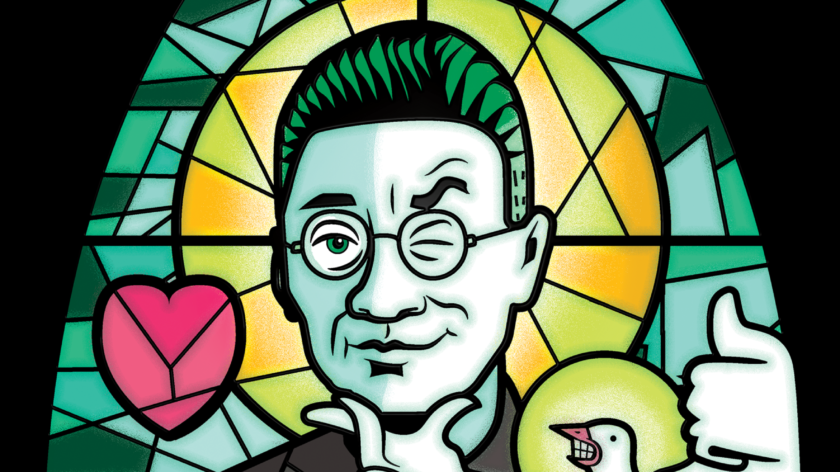-
 Titus Brandsma. Illustration: Roel Venderbosch.
Titus Brandsma. Illustration: Roel Venderbosch.
Titus Brandsma will be granted sainthood this spring, Pope Francis announced today. The canonization will take place in Rome on May 15th. In honour of the canonization, a new book will be published on the former priest, professor, and Rector Magnificus of the Catholic University Nijmegen.
The word is finally out: Titus Brandsma will be granted sainthood this spring. Pope Francis announced it today in a meeting with his cardinals. The canonization will happen on Sunday, May 15th, in an official ceremony in Rome. Represensatives of Radboud University, the Faculty of Religious Studies, and the Titus Brandsma Institute will be in attendance.
Martyr
Brandsma (who was born in Bolsward in 1881) was a priest and a Carmelite. He was a professor of Philosophy at the Katholieke Universiteit Nijmegen, and he was even Rector Magnificus for the academic year of 1932-1933. During World War II, he struggled against the Nazi invaders by refusing to publish NSB (Dutch Nazi Party, ed.) ads in Roman Catholic papers, among other things.
Brandsma was arrested for this in early 1942; he died in concentration camp Dachau later that year. Pope John Paul II beatified Brandsma in 1985 because of his martyr’s death, that will be followed by his canonization this spring.
Radboud University already has several festivities in store in honour of the canonization, such as an academic ceremony and the unveiling of a new plaque near the Carmelite statue next to the CultuurCafé.
Famous Figure
The book Titus Brandsma, van held tot heilige will be published in honour of Brandsma’s canonization. It was written by researchers at the Titus Brandsma Institute and the Faculty of Philosophy, Theology and Religious Studies, but it is intended for a wider audience. Among other topics, there are chapters on Brandsma as a professor and Rector, his mystique, as well as his resistance to the persecution of Jewish people.
‘We intended to place the different facets of Brandsma’s life in a new light’, says Inigo Brocken, who is employed with the Titus Brandsma Institute. Bocken was responsible for the chapter on Brandsma’s academic career, and he is even working on a new intellectual biography on Brandsma.
‘Brandsma is usually celebrated as a hero’, according to Bocken. ‘That is valid, but there are several reasons that allowed him to adopt a heroic role. The breadth of his activities, in connection with his intellectual depth, made him a remarkable figure. He was an active part of so many associations, from the Catholic Esperantist Union to the Frisian environmental protection association, that he became a famous figure.’
‘Titus Brandsma, van held tot heilige’ will be published by Adveniat; it will have 184 pages and be available at most bookstores.



